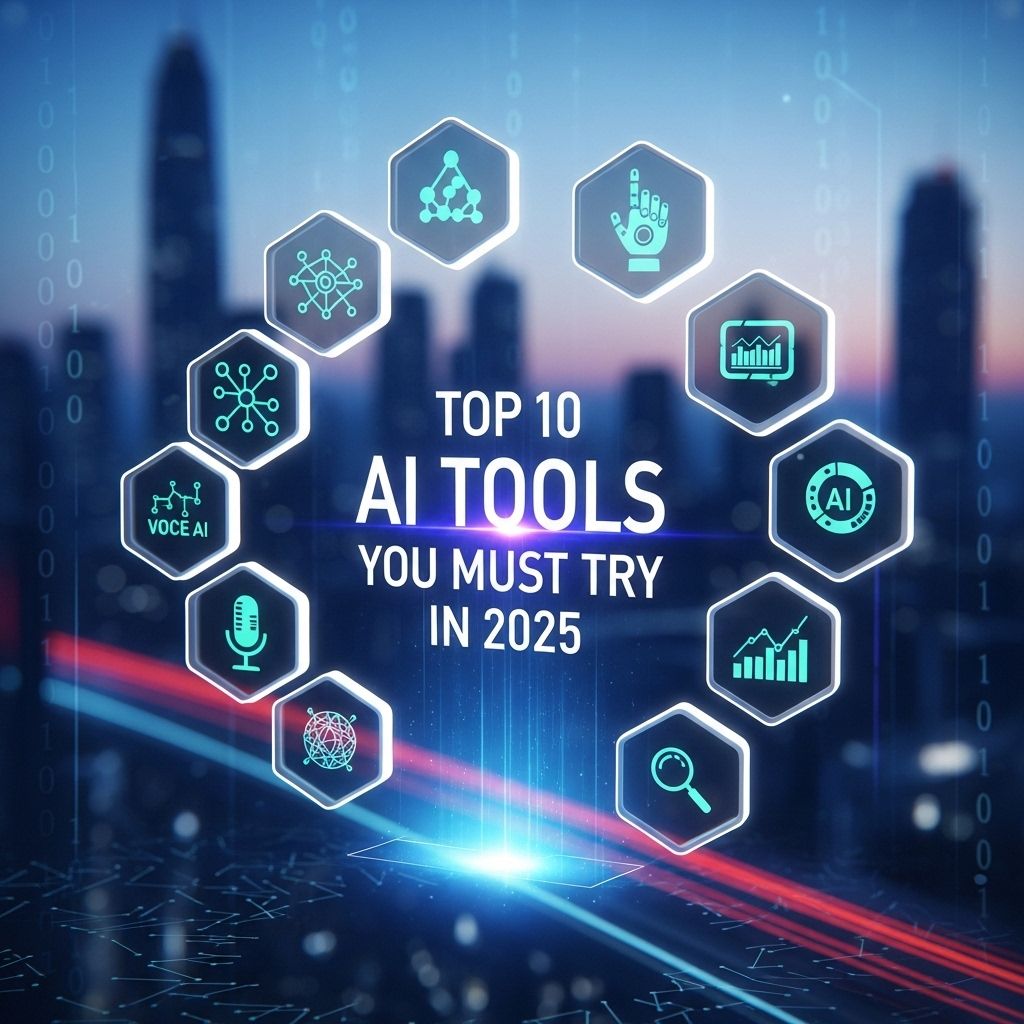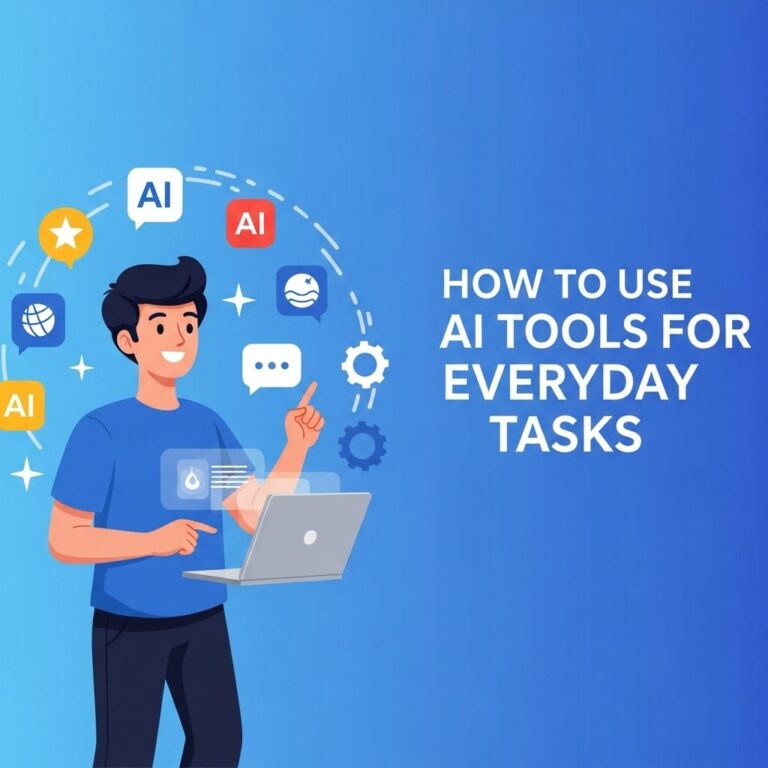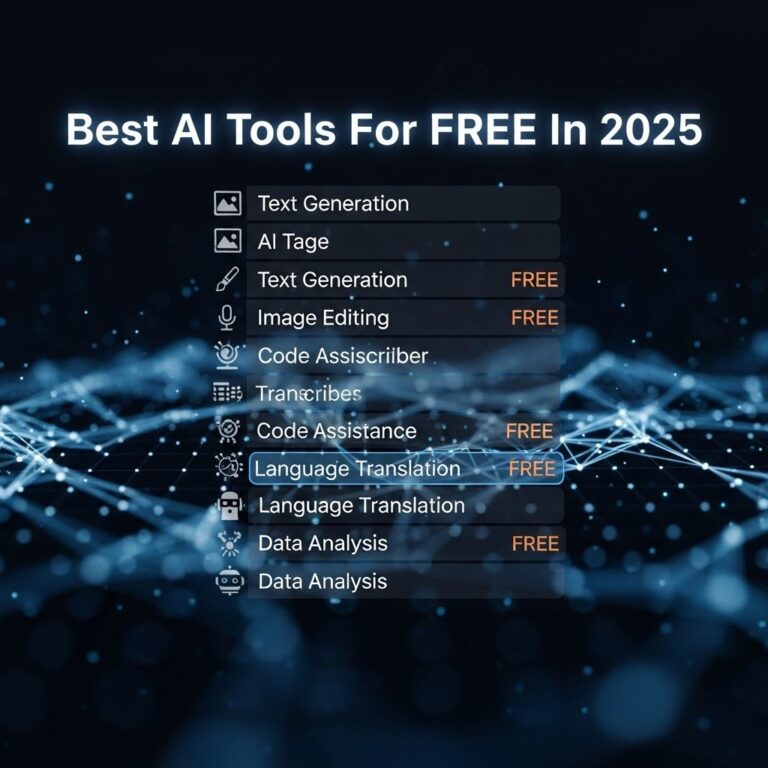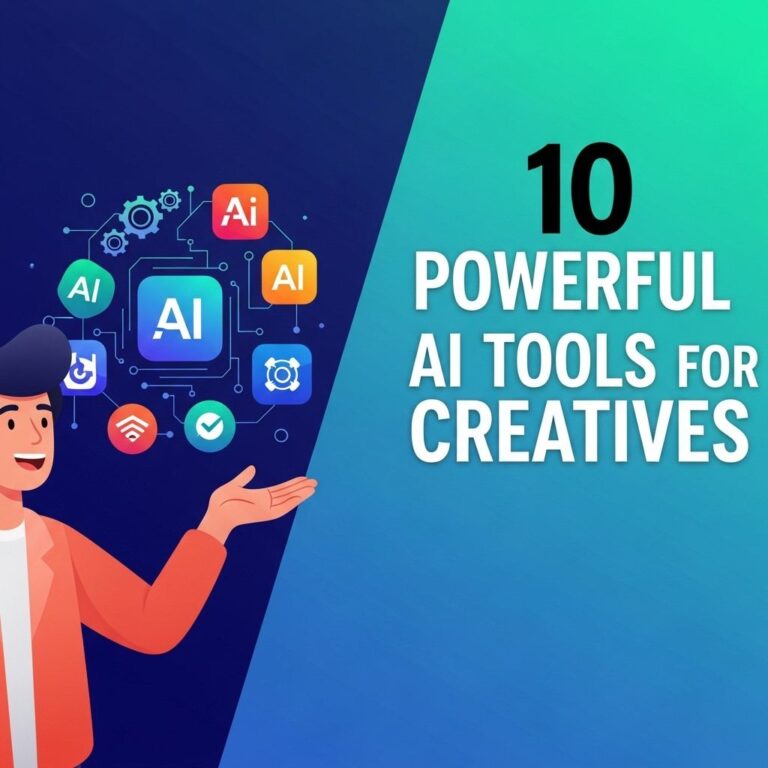As we move further into the 21st century, artificial intelligence (AI) continues to shape the way we interact with technology. From automating mundane tasks to providing insights that drive business decisions, AI tools have become indispensable across various industries. As we approach 2025, the landscape of AI technology is evolving rapidly, presenting exciting opportunities for individuals and businesses alike. In this article, we’ll explore ten AI tools that you should experiment with to stay ahead in this dynamic environment.
Table of Contents
1. ChatGPT-5: The Next Generation of Conversational AI
Building on the success of its predecessors, ChatGPT-5 promises enhanced language understanding and generation capabilities. This tool is particularly useful for:
- Customer service automation
- Content creation and editing
- Real-time language translation
With its improved context awareness, ChatGPT-5 can maintain coherent conversations and provide relevant information, making it an invaluable asset in various applications.
2. DALL-E 3: Creativity Unleashed
DALL-E 3 takes generative art to the next level, allowing users to create unique images from textual descriptions. This tool can be applied in numerous fields, including:
- Marketing and advertising campaigns
- Product design and prototyping
- Entertainment and media production
Its ability to produce high-quality visuals from simple prompts enables creativity without the need for extensive graphic design skills.
3. TensorFlow 3.0: The AI Developer’s Toolkit
As an open-source platform, TensorFlow 3.0 offers a robust framework for machine learning and deep learning applications. Features include:
| Feature | Description |
|---|---|
| Enhanced APIs | More intuitive and user-friendly programming interfaces |
| Improved Performance | Optimized for faster computation and scalability |
| Cross-Platform Compatibility | Seamless integration across various devices and operating systems |
This tool is essential for AI researchers and developers looking to build sophisticated models.
4. Hugging Face Transformers: NLP Simplified
The Hugging Face library continues to be a leader in natural language processing (NLP). With pre-trained models for various tasks, it allows developers to:
- Implement sentiment analysis
- Create chatbots with improved conversational abilities
- Generate text for applications like news summaries or product descriptions
Its user-friendly interface and extensive documentation make it accessible for both beginners and experts.
5. Salesforce Einstein: AI for CRM
Salesforce Einstein integrates AI capabilities directly into the Salesforce platform, enhancing customer relationship management (CRM) through:
- Predictive analytics for lead scoring
- Automated data entry and management
- Personalized marketing campaigns
By leveraging AI, businesses can better understand customer behavior and improve engagement strategies.
6. Microsoft Azure AI: Cloud-Based Solutions
Azure AI offers a suite of AI services that make it easy for organizations to integrate intelligent applications. Key features include:
- Cognitive Services for vision, speech, and language
- Machine learning capabilities for deploying models
- Integration with existing Microsoft products
This flexibility allows businesses to harness the power of AI without needing extensive infrastructure.
7. OpenAI Codex: Automating Code Generation
OpenAI Codex serves as a powerful assistant for developers by generating code snippets based on natural language inputs. This tool is particularly beneficial for:
- Automating repetitive coding tasks
- Learning new programming languages
- Debugging and enhancing existing code
With its ability to understand complex programming queries, Codex streamlines the development process, saving time and resources.
8. IBM Watson: Enterprise AI Solutions
IBM Watson provides a comprehensive suite of AI tools designed for enterprises. Its offerings include:
| Feature | Description |
|---|---|
| Watson Studio | A collaborative environment for data scientists |
| Watson Assistant | AI-driven virtual agents for customer support |
| Watson Discovery | Powerful search and data analysis capabilities |
These tools can help organizations harness AI for data-driven decision-making and operational efficiency.
9. Grammarly Business: AI-Powered Writing Assistant
Grammarly Business enhances team communication through advanced grammar and style checks. Key features include:
- Real-time feedback on writing quality
- Customized style guides for brand consistency
- Enhanced plagiarism detection
By adopting this tool, businesses can improve their written communication, ensuring a professional image.
10. Notion AI: Smart Workspaces
Notion AI brings intelligence to workspace management, allowing users to:
- Organize notes and projects using AI suggestions
- Generate meeting summaries and action items
- Collaborate with real-time updates and insights
This tool is perfect for teams looking to enhance productivity and streamline workflows.
Conclusion
As we look toward 2025, embracing AI tools can significantly impact your personal and professional life. From enhancing creativity to automating complex tasks, the tools mentioned in this article represent the forefront of AI technology. Experimenting with these tools will not only help you stay relevant in a fast-evolving landscape but also empower you to leverage the full potential of artificial intelligence.
FAQ
What are the top AI tools to consider in 2025?
Some of the top AI tools to consider in 2025 include advanced natural language processing platforms, AI-driven analytics tools, and machine learning frameworks that enhance productivity and business intelligence.
How can AI tools improve my business operations?
AI tools can streamline processes, enhance decision-making, automate repetitive tasks, and provide insights through data analysis, ultimately leading to increased efficiency and profitability.
Are AI tools suitable for small businesses?
Yes, many AI tools are designed with scalability in mind, making them accessible and beneficial for small businesses looking to leverage technology to compete in the market.
What are the key features to look for in an AI tool?
When choosing an AI tool, look for features such as user-friendliness, integration capabilities, scalability, data security, and strong customer support.
How can I stay updated on the latest AI tools?
To stay updated on the latest AI tools, follow industry news, subscribe to tech blogs, and participate in webinars or conferences focusing on artificial intelligence and technology trends.
What industries can benefit from using AI tools?
AI tools can benefit various industries, including healthcare, finance, retail, marketing, and manufacturing, by improving efficiency, enhancing customer experiences, and driving innovation.









